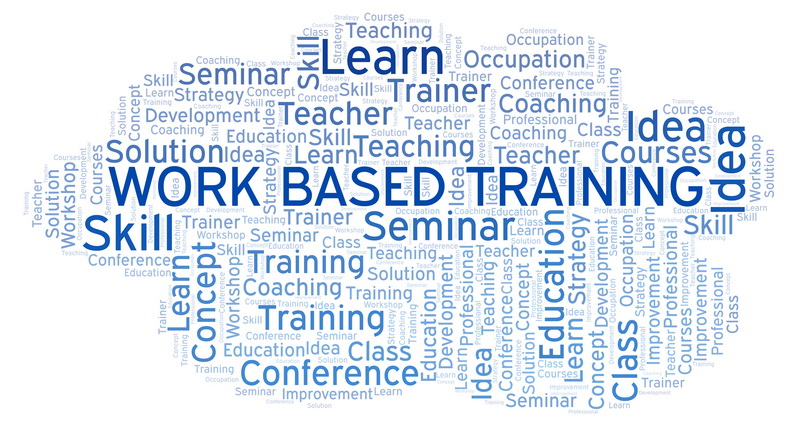Last year the UNESCO-UNEVOC International Centre in Bonn, Germany, published a paper on work-based learning (WBL) and its role “as a pathway to competence-based education.”
The work is wide ranging and several Australians are featured among the contributing authors: notably Stephen Billet, Peter Rushbrook and Roger Harris.
The book
This ‘anthology’ of 334 pages, edited by Anke Bahl and Agnes Dietzen, is entitled “Work-based Learning as a Pathway to Competence-based Education.” It consists of an Introduction and 17 chapters organised into five ‘parts’, covering both a wide range of themes and work from a number of countries. It concludes with a chapter entitled “Prospects”. One notable theme covers the role of tutors, fellow workers and instructors in work-based learning, so maybe that is where we should concentrate! Significantly, this is the section covered by two of the three Australian authors: Peter Rushbrook and Roger Harris.
Work-based learning: the concept
Work-based learning (WBL) is being increasingly recognised around the world as an effective approach to education and training that promotes quality and relevance. It varies in its nature from country to country, though. WBL can cover “experiential” or “informal learning” in the workplace itself. Its more common meaning in the Australian context relates to more formalised processes of “learning-on-the-job” and “work-related learning” in explicitly vocational contexts and VET institutions. Put simply, WBL means “learning for work, learning at work and learning through work.” It is practically-oriented and helps develop professional, social and personal competence and also helps to develop key employability skills. WBL can embrace students learning in schools and VET providers as well as those learning within companies.
When both institutions and workplaces are involved in WBL, the process requires effective conversation between employers, work-based learning providers and learners, and:
“makes use of analytical tools to enable them to co-produce the types of learning experiences and environments that will foster the development of occupational expertise.”
How can teachers foster effective WBL?
Lesson 1: take a broad view of who the WBL ‘teachers’ are. In fact, guidance and support from workplace colleagues and supervisors, or even appointed in-house trainers, are crucial for the effectiveness of WBL. Peers and senior staff in the workplace help to develop the confidence that is necessary for any employee to grow and learn, but it is often not their main work role. So, the learning culture, approaches to training management of workplaces, the quality of the workplace ‘trainers’ and the quality of the dynamic that develops between those learning and those supporting their learning are all critical components in WBL’s effectiveness. Amongst other things, two key actions include talking with the employee while working with them about what they are doing and giving them feedback and encouragement about their work performance. However, the most important thing for workplace trainers to do is structure and shape work processes to accommodate learning.
Lesson 2: The quality of the relationship between the off- and on-job learning providers are critical. One clear and common message from Harris’s chapter is that, whatever model of support and guidance is used in WBL, it is largely shaped by the quality of the personal relationships built between VET personnel and key players in workplaces.
Lesson 3: Workplace interaction, experience, and reflection are vital factors underpinning teacher’s and workplace trainer’s capabilities to deliver effective WBL programs. Developing and enhancing these capabilities involves the experience of seeking, delivering, and refining their work practices, interacting effectively with clients, learners, other adult educators, and contacts from other industries. It’s about good networking! Finally, reflection on personal practice and experience is essential, so you always need to be learning if you are delivering or facilitating WBL!
And finally, lesson 4: Make it as easy as possible for the student to be a learning broker in the WBL process. What the authors mean by this is that learners are able to integrate and transport skills, information and knowledge between the workplace and their off-job provider as readily as possible. The degree to which the learning experiences on and off the job can be complementary depends on the understanding and willingness of all parties to put aside their own vested interests for the good of an individual student’s learning.








